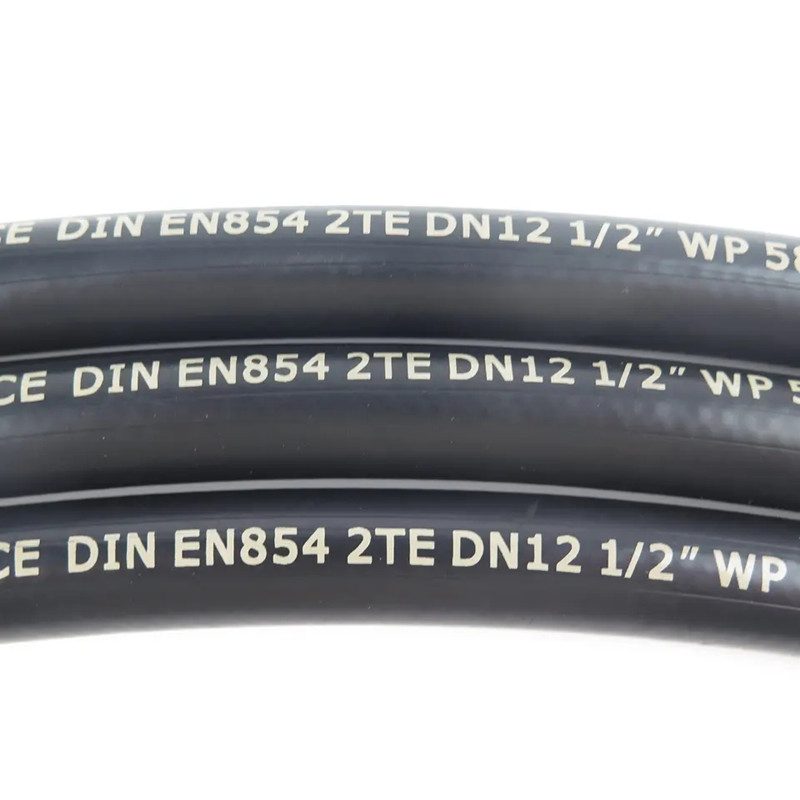Apr . 08, 2024 15:43 Back to list
HYDRAULIC HOSE REPAIR GUIDE-1 4 hydraulic hose
HYDRAULIC HOSE REPAIR GUIDE
If correctly maintained, a hydraulic hose should typically last up to 5 years. Hydraulic hose repair is not good practice and should never be undertaken due to the dangers involved. ‘Re-ending’ damaged hoses can be extremely dangerous and can put workers at serious risk. In this blog, we will highlight common causes of hose failure and replacement options for your hydraulic hose.
WHAT CAN CAUSE HYDRAULIC HOSE FAILURE?
Hydraulic hoses are built and designed to withstand pressure. Unfortunately, they are not invincible. Over time, and without the correct maintenance hydraulic hose can wear. Some of the most common reasons for this include:
AGE:
The older a hose gets, the more likely it is to become fragile and unable to withhold pressure from hydraulic systems.
INCORRECT PRESSURE TYPE:
Incorrectly graded hose for application type can cause instability, which can inevitably cause issues throughout the hydraulic system.
ABRASION:
Hydraulic hoses have the ability to bend and manoeuvre into tight spaces. Sometimes if the hose is rubbing against surrounding components this can cause wear on the outer casing.
INCORRECT FITTINGS:
There is a vast variety of hydraulic hose fittings to cater for different hose ports. Installing incorrect hydraulic fittings can cause leakages. Moreover, incorrect insertion depth can cause the fittings to blow off the end of the hose.
HIGH TEMPERATURES:
Exposing hydraulic hose to higher temperatures than what they are designed for causes detrimental effects on lifespan and performance. Not to mention that it’s highly dangerous.
HOW DO I KNOW WHEN MY HYDRAULIC HOSE NEEDS REPLACING?
Our top tip for hydraulic hose health is simple, ensure regular maintenance and servicing. This means that the signs of potential hose failure can be seen early, allowing for replacement hose to be fitted at a time suitable for the application’s workload rather than an emergency replacement which can cause unneeded application downtime.
For more information, see our guide on lengthening the lifespan of your hydraulic hose.
CHOOSING THE CORRECT HYDRAULIC HOSE:
Although most hydraulic hoses look fairly similar, it is important to discuss with hydraulic hose specialists your requirements so they can select the most appropriate hose for your needs. Therefore, listed below are the common questions our experts will ask in order to design and supply the suitable hose;
- What type of fluid is used in the system?
- What is the desired hose size? (Diameter and length)
- What is the hose attached to? (To select appropriate fittings)
- What type of operating conditions is the hose used in? (Pressure and temperature)
-
Best Four Steel Wire Spiral Hose Hydraulic R12 – Durable High-Pressure Hose Manufacturer
NewsJul.08,2025
-
High-Quality 1/4 Hydraulic Hose – Soft, Flexible & Durable Rubber Hoses for Industrial Use
NewsJul.08,2025
-
1 1 2 Inch Hydraulic Flexible Hose - Durable, Reliable, High-Pressure Solutions
NewsJul.07,2025
-
High-Quality 1 2 Rubber Hose - Durable, Flexible Hydraulic Solutions
NewsJul.07,2025
-
Discover SAE Hydraulic Hose Types - High Quality & Durable Hoses from Leading Factory Supplier
NewsJul.06,2025
-
High Pressure Wire Hydraulic Rubber Hose Supplier Durable & Reliable 1SN Hose Solutions
NewsJul.06,2025

